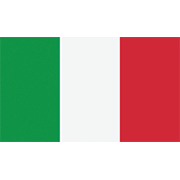Fiscal subject related
In a significant move towards simplifying tax compliance in Italy, Legislative Decree 1/2024 introduces a new method for sending transactions electronically by the fiscal rules in Italy. This decree allows receipts to be transmitted via software, eliminating the need for electronic recorders and RT devices.
Article 24 of Legislative Decree 1/2024 aims to rationalize and simplify tax compliance rules. It liberalizes the electronic storage and telematic transmission of receipts, allowing merchants to use specific software procedures that ensure data security and integrity. This change eliminates the need for current hardware tools like telematic recorders and introduces the possibility of using cloud-based solutions, reducing the need to print telematic receipts.
However, merchants must wait for the Revenue Agency to officially define the technical specifications of the software and more rules, details, and deadlines. More precisely, merchants are burdened with various tools to record transactions, manage electronic payments, and process sales and purchase data via RT devices, printers, and servers. This obligation is still mandatory and must be respected. But in 2025 and later, specialized software will be possible instead of RT devices.
What is currently known is that for transactions regulated by electronic payment methods, the software must integrate payment processes with corresponding operations. This integration unifies the tools used for commercial, administrative, fiscal, and payment operations, simplifying administrative management and reducing the burden on merchants while ensuring data security and integrity. These new solutions are expected to reduce costs by eliminating the need for mandatory periodic maintenance of specific hardware devices.
In technical terms, a draft resolution that introduces technical details is currently in the process in front of the EU Commission, and it is expected to be accepted and published by the end of 2024 and at the beginning of 2025.
Merchants can adopt these solutions once the Director of the Revenue Agency issues the necessary provisions defining the methods and technical specifications for the software's creation, approval, and release; therefore, more regulations still need to be published.
This legislative change marks a significant step towards modernizing and simplifying the administrative processes for merchants, promising a more efficient and cost-effective approach to managing electronic receipts and payments.
Draft version of the technical specification is to be found here.
Other news from Italy
Update of the technical specification regarding software solution for fiscalization in Italy
 Italy
Author: Nikolina Basić
Italy
Author: Nikolina Basić
Italy has updated the technical specifications governing software solutions used for fiscalization. The revision clarifies technical and compliance requirements to ensure proper reporting and integration with the Italian tax authority’s systems. Definition of the information to be transmitted and the technical specifications for the implementation, approval, and release of the software solutions... Read more



New document was uploaded: S4FiscalBackoffice Patch
S4F backoffice patch is intended for users who have already installed S4F backoffice and are intended to update existing installations to latest version. To do so apply only patches that are marked with version number that is newer than your currently installed instance of backoffice. Please make sure to install all available patches sequentially (without skipping). This package contains instruction, release notes, changelog and software packages required for deployment of this software component. Read more
Subscribe to get access to the latest news, documents, webinars and educations.
Already subscriber? Login


New document was uploaded: S4F backoffice installer
S4F backoffice installer is intended for users who are installing the software for the first time. Please make sure to obtain latest version of installer and to apply all subsequent patches that are released subsequently. This package contains instruction, release notes, changelog and software packages required for deployment of this software component. This version of the Backoffice installer supports the following countries: Austria, Bulgaria, Croatia, France, Italy, Poland, Portugal, Romania, Slovakia and Slovenia. Read more
Subscribe to get access to the latest news, documents, webinars and educations.
Already subscriber? Login


New document was uploaded: S4FiscalBackoffice Patch
S4F backoffice patch is intended for users who have already installed S4F backoffice and are intended to update existing installations to latest version. To do so apply only patches that are marked with version number that is newer than your currently installed instance of backoffice. Please make sure to install all available patches sequentially (without skipping). This package contains instruction, release notes, changelog and software packages required for deployment of this software component. Read more
Subscribe to get access to the latest news, documents, webinars and educations.
Already subscriber? Login


What are the obligations of merchants regarding new rules for electronic payments start January 1, 2026
 Italy
Author: Nikolina Basić
Italy
Author: Nikolina Basić
Starting January 1, 2026, merchants must digitally link payment terminals with certified cash registers via the Revenue agency system (Agenzia delle Entrate portal). Read more
Subscribe to get access to the latest news, documents, webinars and educations.
Already subscriber? Login


New rules for electronic payments start January 1, 2026: what merchants need to know?
 Italy
Author: Nikolina Basić
Italy
Author: Nikolina Basić
Starting January 1, 2026, Italian merchants must connect electronic cash registers to electronic payment terminals. The Revenue Agency provides online guidelines for pairing systems, with services launching in early March 2026. Starting January 1, 2026, new rules will require all merchants in Italy to connect their electronic cash registers with electronic payment terminals. The Revenue Agency ha... Read more



New document was uploaded: S4FiscalBackoffice Patch
S4F backoffice patch is intended for users who have already installed S4F backoffice and are intended to update existing installations to latest version. To do so apply only patches that are marked with version number that is newer than your currently installed instance of backoffice. Please make sure to install all available patches sequentially (without skipping). This package contains instruction, release notes, changelog and software packages required for deployment of this software component. Read more
Subscribe to get access to the latest news, documents, webinars and educations.
Already subscriber? Login

